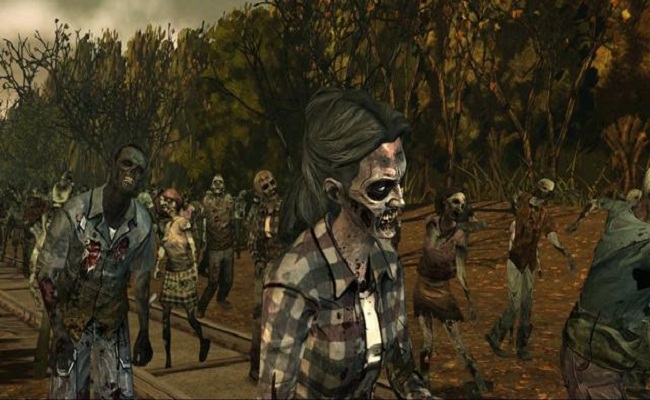Someone needs to inform the folks at Telltale Games how zombies games are supposed to work. They’re supposed to be about blasting zombie dogs with shotguns and blowing up boss monsters with grenade launchers. Zombie games aren’t supposed to make you think, or re-evaluate your moral views. And they damned well aren’t supposed to make you cry. The final episode of The Walking Dead arrived this week and it didn’t have any zombie dogs, or grenade launchers, but it did have a heartwrenching conclusion to this story.
The big question that gamers might have about the fifth episode is whether or not the ending is “Good”. Yes, Episode Five keeps up the emotional momentum of the previous four episodes and any concerns that Telltale might have “Pulled a Mass Effect” with the ending are unwarranted. With the whole thing out, cautious buyers can rest assured that this game lives up to its praise right until the last minute.
Episode Four ended with some major cliffhangers; Lee and Clementine were in big trouble as the subplots came to a head. Unlike the previous episodes, this one picks up where the last one left off, and it heads full steam right to a powerful finale. It runs a little shorter than the other episodes, but that’s okay because most players will be compelled to play it all the way through in a single stretch to find out what happens.
When compared to the rest of the series, there’s less action in Episode Five. There are a couple of very short combat sequences, but this one is about Lee (And the Player) making the final decisions that will determine which of his friends makes it through the apocalypse.
There have been many important choices over the course of this adventure, so each player is going to have a different experience. Perhaps careful gamers who made the perfect choices at every step will get an ending where Lee and Clementine go out for ice cream and adopt a puppy but…
Well, most players are in for a rough ride, emotionally, and ice cream & puppy dogs ain’t likely no matter what players choose to do.
While this is a game about choice, it’s also about judgment. The designers are judging the Player, as is the community, thanks to the graphs that appear at the end of each episode informing the Player how their decisions compared to other players. But players have also had to justify their actions to Clementine and the other survivors too.
In the final episode, this theme becomes critically important as Lee faces a hidden antagonist who has been secretly judging him (And the Player) all along. Here the final boss isn’t a giant cyborg zombie. No, The Walking Dead’s final boss is your own superego.
Players will be forced to face the question “Did you do the right thing?” and either stand by their decisions or admit their failings. There’s always a second play through to try to get things “Right”, but the first time through The Walking Dead will force gamers to confront their rage, callousness and panic.
The proper way to have played this game was buying it month-by-month as each episode arrived. The nail-biting cliffhangers could be savored for weeks as each new installment approached, and players who have enjoyed it this way over the last four months got to experience it in a special way.
Now that the final piece is here, the game can be bought as a bundle, played through all in one go. When taken as a complete story, The Walking Dead is one of the best games of the year. In the years ahead, the ending will be held up as an example of how to end a story with a devastating punch that will leave players thinking about their experience long after they shut down their consoles.
The Walking Dead: Episode Five is out now for PC, Xbox 360 and PlayStation 3, with a version for iOS coming soon.


0 Comments